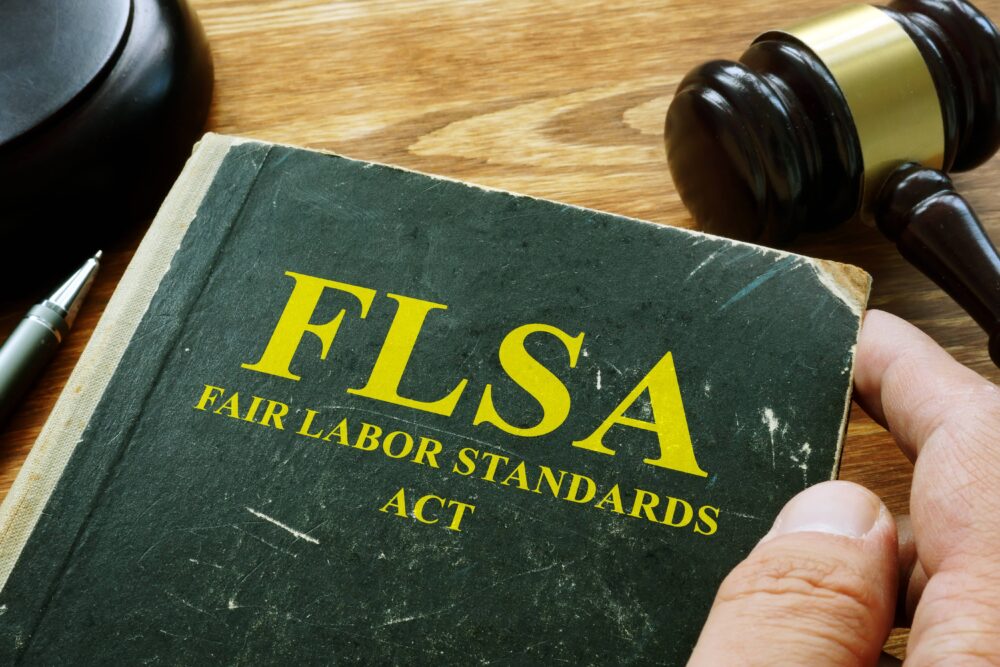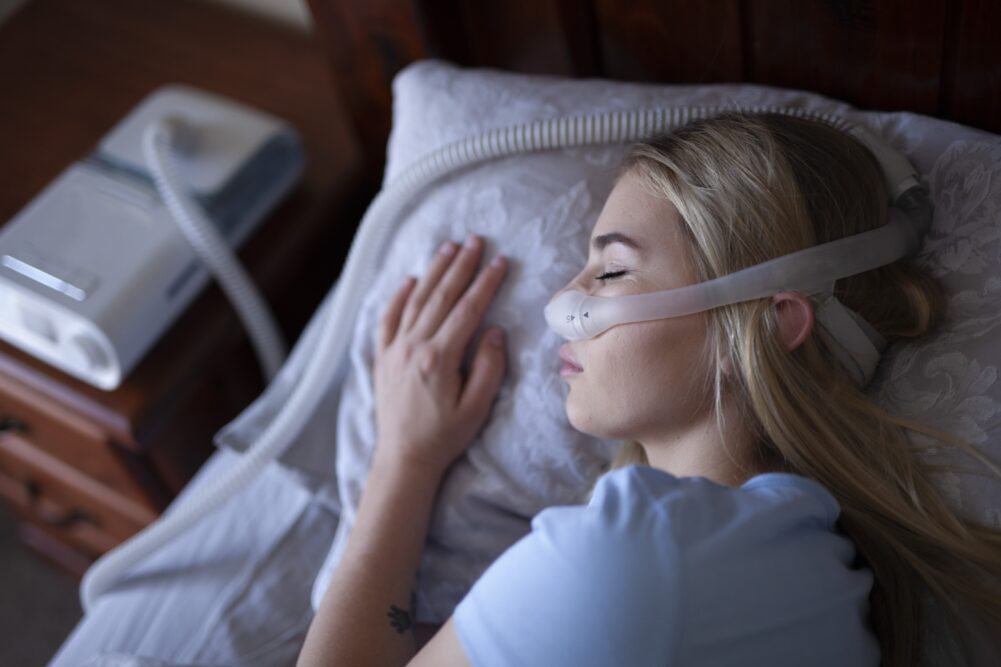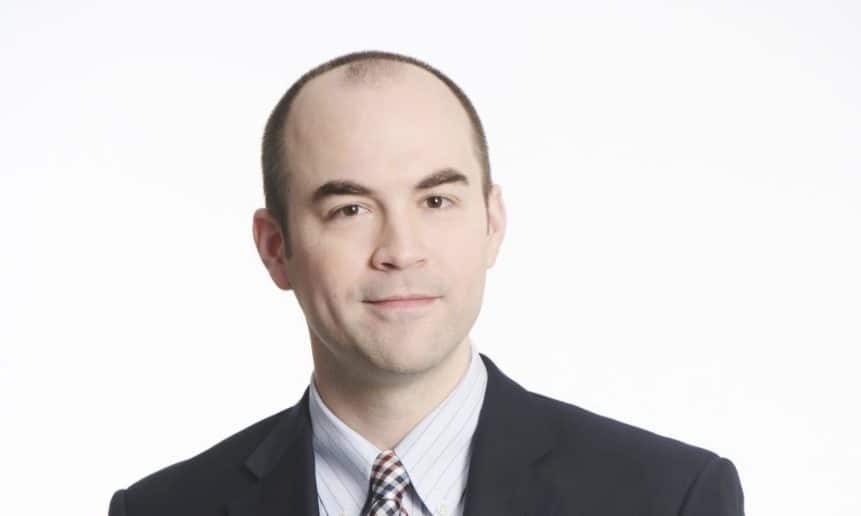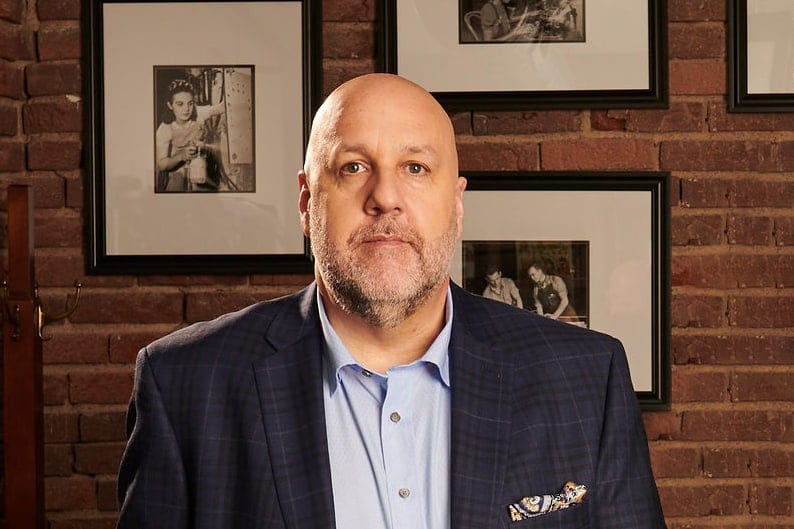KATRINA CARROLL NAMED TO ELITE WOMEN OF THE PLAINTIFFS BAR
American Lawyer Media, publisher of Law.com, and The National Law Journal, has named Lynch Carpenter Partner, Katrina Carroll, one of sixteen honorees to “Elite Women of the Plaintiffs Bar,” part of The National Law Journal’s 2023 Elite Trial Lawyers awards. The Elite Trial Lawyers awards recognize individuals and Firms that have performed outstanding and cutting-edge work for plaintiffs and “possess a solid track record of client wins over the past three to five years.”
Katrina is committed to pursuing justice and over the course of her 20 year career, she has recovered more than $1 billion for everyday people, investors and businesses. Katrina served as Co-Lead Counsel in the TikTok consumer privacy litigation, one of the biggest data privacy cases in the country which resulted in a reward of $92 million to a class of 1.4 million people for the company’s violation of users’ private data. Carroll served as Co-Lead Attorney for TikTok users in the Illinois Subclass which asserted claims under the Illinois Biometric Information Privacy Act.
Congratulations, Katrina, on this prestigious award!
Seventh Circuit Win for Lynch Carpenter Attorney, Kyle Shamberg
Lynch Carpenter attorney Kyle Shamberg won a significant victory from the United States Court of Appeals for the Seventh Circuit in Bakov v. Consolidated World Travel, Inc. In a unanimous opinion released May 19, 2023, the appeals court affirmed the Northern District of Illinois court’s decision to shift costs of class notice to a defendant (CWT) found liable for bombarding consumers with prerecorded telemarketing calls in violation of the Telephone Consumer Protection Act (TCPA).
The circumstances of the district court’s ruling were unusual, in large part because of Shamberg’s persistence in advocating for consumers. In 2019, the court certified an Illinois class, but found it lacked jurisdiction to certify a class including out-of-state residents. Shamberg won summary judgment for the Illinois consumers and then, after the Seventh Circuit clarified class action jurisdictional requirements in an unrelated case, moved to amend the class definition and subsequently won summary judgment for a nationwide class. Because CWT’s liability was already established, the court shifted the costs of notifying out-of-state class members from plaintiffs to the defendant – saving over $600,000 in administrative costs.
CWT appealed the district court’s cost-shifting order, arguing that the Supreme Court’s decision in Oppenheimer Fund, Inc. v. Sanders created a categorical list of four factors courts must consider before issuing a cost-shifting order. Shamberg countered that Oppenheimer did not establish a bright-line rule, especially because the Supreme Court was not confronted there with a case where the defendant’s liability had already been determined. The Seventh Circuit held oral argument on February 10, 2022, and agreed with Shamberg’s argument that a prior finding of the defendant’s liability is a permissible basis for shifting costs of class notice.
By opening another route to shift the burden of administrative costs to tortfeasors, Bakov represents a significant win for consumers looking to vindicate their legal rights.
View the full opinion here.
Lynch Carpenter Supports the Pittsburgh Community through the Allegheny Country Bar Association
Bar associations offer many benefits to lawyers that complement and further the practice of law. Those benefits include pertinent information about practice trends, continuing legal education (CLE) courses, building camaraderie and professional relationships, discovering or cultivating a professional skill set, and volunteer and pro bono opportunities. The associations can be mandatory, such as a state regulatory bar association, or voluntary, like the American Bar Association. While serving lawyer members in cities, counties, regions, nationally, or internationally, bar associations also help the public.
Engaging the local community through bar association service and philanthropic work erases doubts and stereotypes surrounding attorneys, strengthening integrity, advocacy, and trust in the profession. Community engagement also breaks down barriers and promotes accessibility to the legal system. The Allegheny County Bar Association (ACBA) has served the Allegheny County legal community since 1870 with a mission “to empower our members; promote a just, accessible and inclusive judicial system; and serve the community at large.” The ACBA welcomes all attorneys and law students. It has numerous sections for lawyers to get involved, including Young Lawyers Division (YLD), Women in the Law Division (WLD), Civil Litigation Section, Homer S. Brown Division (HSB), and LGBTQ+ Rights Committee to name a few.
Many of the attorneys at Lynch Carpenter’s Pittsburgh office are involved with the ACBA. For example, Gary Lynch serves on the ACBA Federal Court Section Council, a position nominated or appointed for a three-year commitment. Kelly Iverson is an active member of the Federal Court Section and Civil Litigation Section. Kelly recently volunteered to judge the Allegheny County High School Mock Trial competition. Jamisen Etzel wrote and instructed an ACBA CLE called Class Action for the Non-Class Action Attorney, which was presented during a “SkiLE” (a day of skiing while collecting a CLE credit on the bus ride to Seven Springs) sponsored by Lynch Carpenter. The firm also sponsored an ACBA Strike Out Hunger event (a game night of bowling with all proceeds benefiting the hunger campaign for the Allegheny County Bar Foundation’s Attorneys Against Hunger). As a firm, our lawyers traveled to the ACBA’s Annual Bench Bar Conference in Seven Springs, an event that encompasses CLEs, opportunities to network, meet more amazing attorneys, and create exciting memories with colleagues.
Even more unique to the ACBA is its zeal to encourage and support its young lawyers (practicing ten years or less). The YLD perpetually facilitates the advancement of its section members through events, education, fundraising, and volunteer work. In YLD programming, the Bar Leadership Initiative (BLI) is offered every year for section members. BLI was designed for young lawyers with little to no involvement with the ACBA to develop leadership and professional skills, while learning the inner workings of the ACBA. Only 15 individuals are selected per class and the class must complete a project.
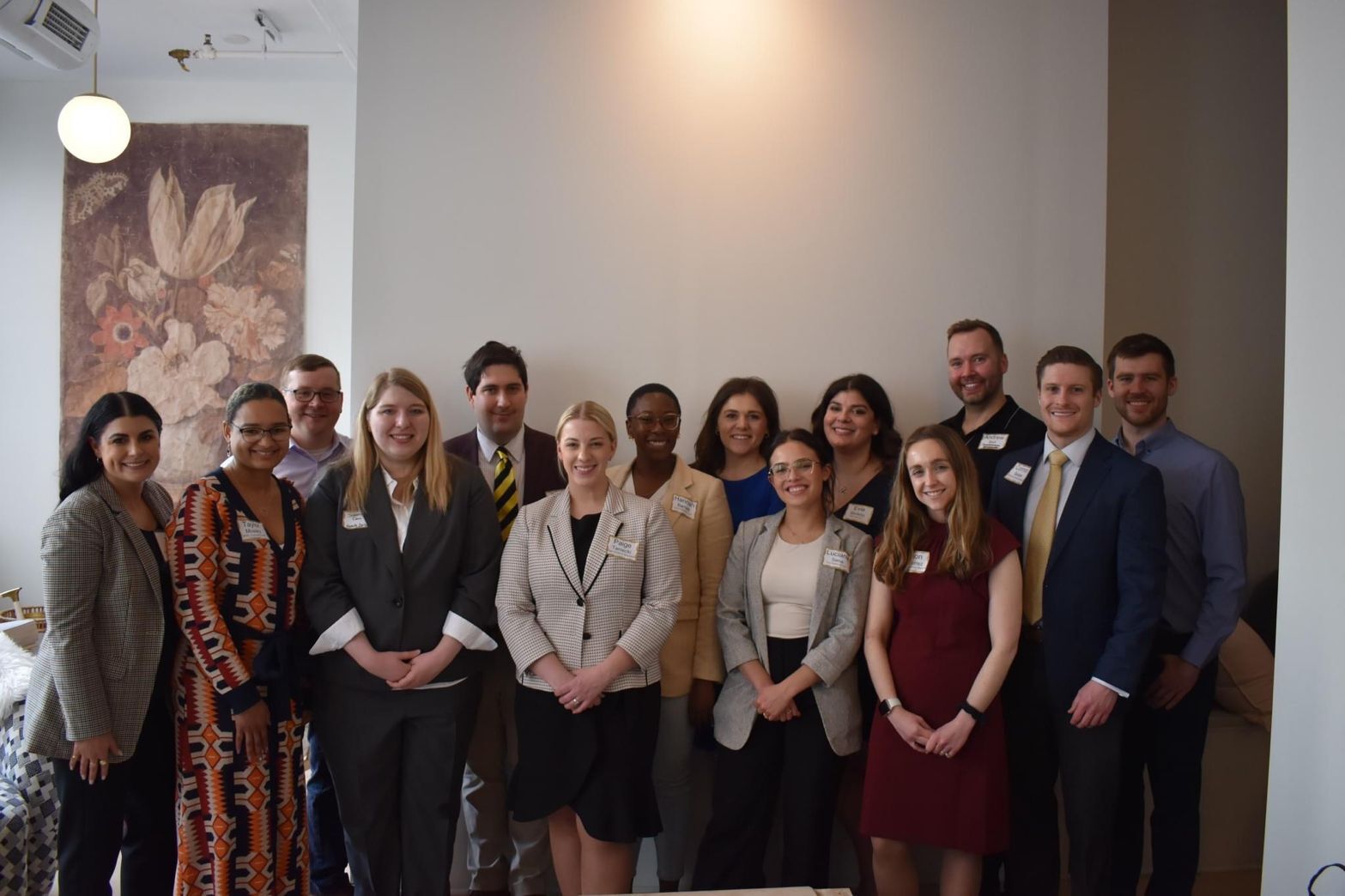
2022 -2023 Bar Leadership Initiative Class
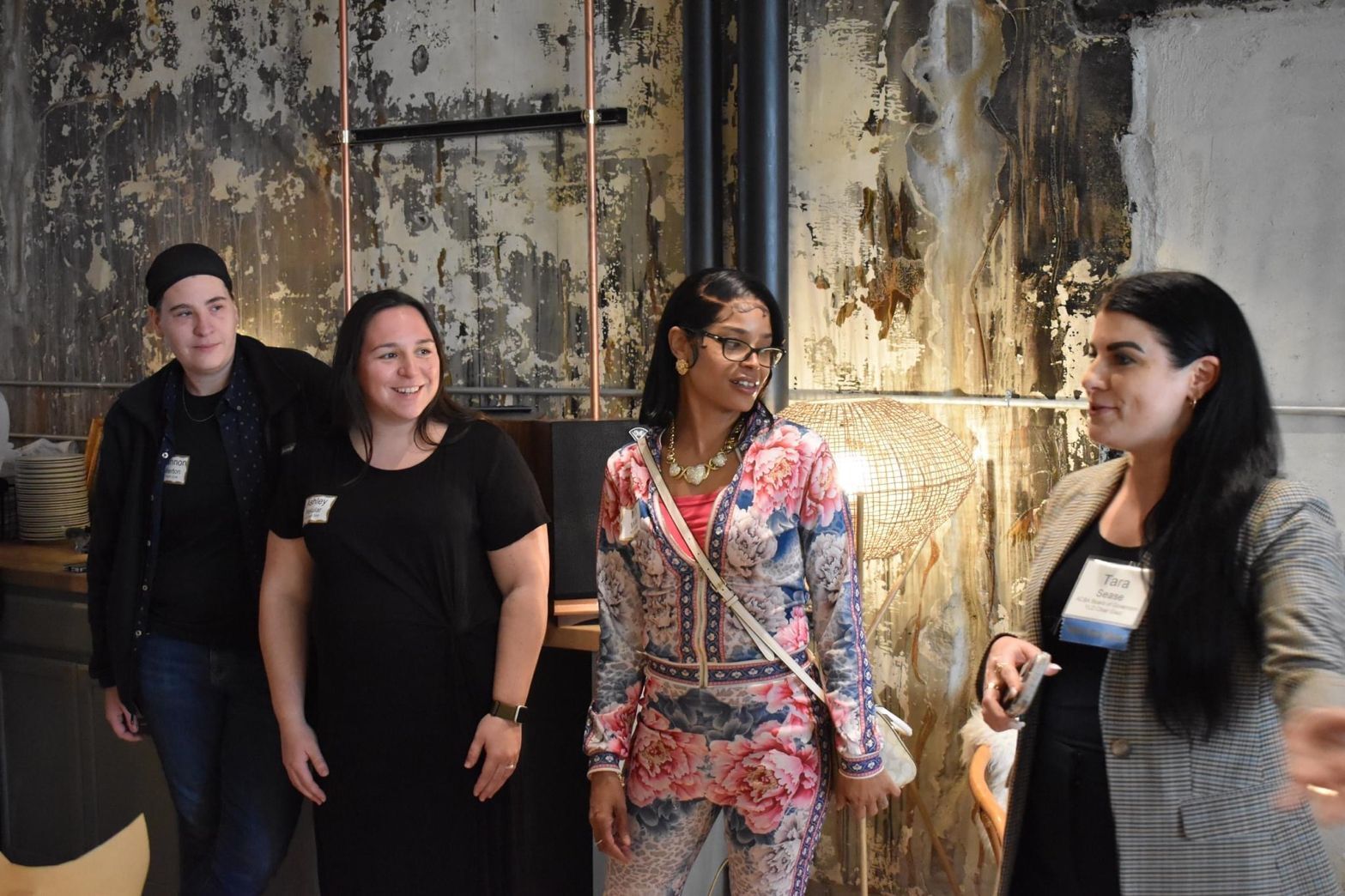
412 Youth Zone Representatives and BLI Chair, Tara Sease, at Luggage with Love Happy Hour
This author was accepted to the 2022-2023 BLI class and participated in this rigorous yet rewarding program. As part of the curriculum, I attended monthly BLI meetings, joined the YLD Education Committee, participated in the YLD Annual Gift Drive, and attended various YLD, ACBA, and other divisions events. With the Education Committee, I volunteered to chair the SkiLE, assisted with other education programs, and offered ideas for upcoming YLD CLEs.
The 2022-2023 BLI class project was Luggage with Love. We collected new or gently used suitcases and bags to donate to 412 Youth Zone to be provided to young adults transitioning out of foster care. Included in the bags were pamphlets with QR codes to basic legal knowledge related to taxes, voting, Miranda rights, and landlord/tenant law, along with toiletries and other necessities. In Pennsylvania, approximately 1,100 children age out of foster care each year, and many have no financial resources. One in four of those children experience homelessness or mental health challenges. 412 Youth Zone was designed to help young people between the ages of 16 and 23 that are transitioning out of foster care and help them to “gain stability, build positive relationships, learn life skills, meet basic needs, foster creative expressions and be guided on the right path towards a brighter future.” The BLI class also planned a happy hour to collect bags and raise funds to purchase additional toiletries. The class delivered over 150 new/gently used luggage/duffel bags and presented 412 Youth Zone with a check in the amount of $1,415 (the total proceeds raised during the happy hour).
For nine months with the BLI, I grew my professional network, learned more about the ACBA structure, and discovered new transferable skills, while strengthening my leadership and professionalism. The experience culminated with a rewarding class project that assisted those youth aging out of foster care, but also raised awareness in the local bar association of 412 Youth Zone and its mission. What’s next after BLI? I am excited to have been nominated for a council position with HSB and plan to continue to serve the legal community.
On a personal note, it’s been an incredible and full-circle experience to be involved with the ACBA, YLD, and HSB. I was placed with an ACBA-affiliated firm in 2011 as part of an HSB summer program for high school students. As a teenager, I was unsure of my future and where I’d be after high school. I’m grateful to the ACBA and the HSB for influencing my decision to become a lawyer. My path now is clear. I’m proud and honored to serve the legal community. Hopefully, my service can spark a positive influence in another person’s life. Each person from my class (and our BLI chair) inspired me to become a better attorney and community leader. I’m happy to have worked with outstanding young attorneys and look forward to more collaboration in the future.
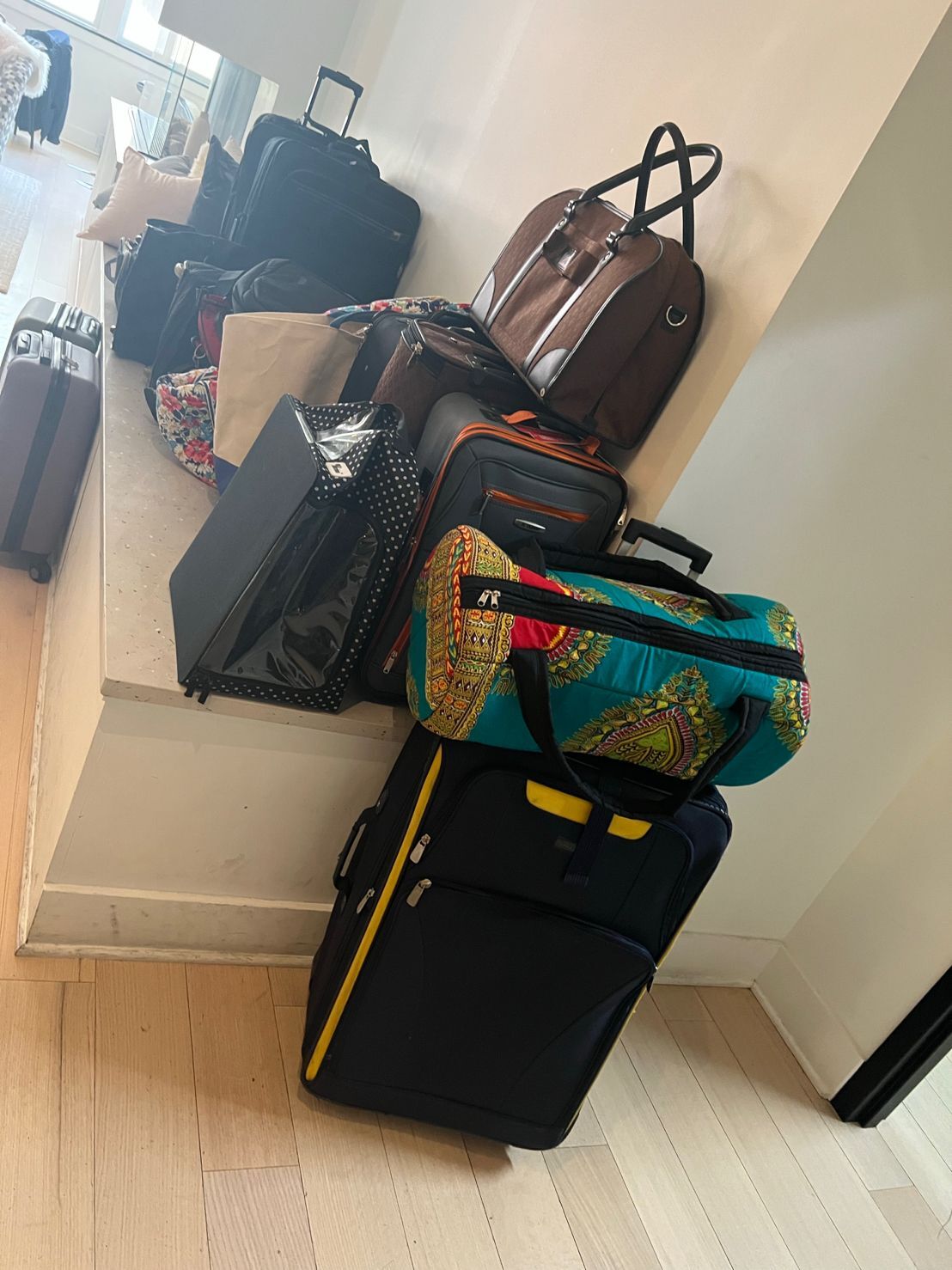
Donations at Luggage with Love Happy Hour
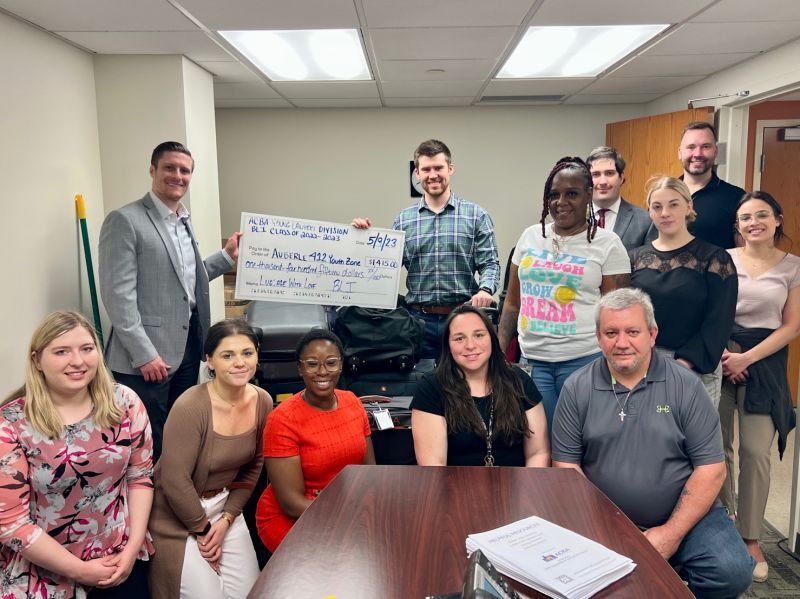
BLI class members presenting check to 412 Youth Zone
Blog By Hannah Barnett
1 ACBA Mission Statement, https://www.acba.org/about/mission-statement/.
2 Homer S. Brown is considered the first African American judge in Pittsburgh. He graduated from the University of Pittsburgh School of Law in 1923 and joined the ACBA the same year. He served the Pittsburgh community for over 50 years as both a civil and political rights activist Homer S. Brown Biography, https://www.acba.org/homer-s-brown-biography/.
3 See https://www.psrfa.org/being-a-foster-parent/the-facts/
4 Id.
5 Auberle 412 Youth Zone, https://www.auberle.org/the-412-youth-zone
Lynch Carpenter Attorneys Appointed as Class Counsel for Sincera Reproductive Medicine Class Settlement
On March 2, 2023, Judge Joel H. Slomsky of the Eastern District of Pennsylvania granted preliminary approval to a proposed class action settlement that resolves claims against Defendant Sincera Reproductive Medicine, formerly known as Abington Reproductive Medicine, stemming from a 2020 data breach during which an unauthorized third-party gained access to Sincera’s data environment, resulting in the potential exfiltration of certain protected health information (“PHI”) and personal identifying information (“PHI”) of current and former patients of Sincera. The Court certified a settlement class consisting of “All Persons residing in the United States who were provided notice from Sincera that their information was involved in the Data Incident.”
Under the Settlement, Sincera agreed to pay a minimum of $800,000.00 and a maximum of $1,200,000.00 in monetary relief to the settlement class. Settlement class members that submit a claim, can receive a cash payment of $150.00 by confirming that they have suffered any of a broad number of harms that they believe is related to the data breach, including but not limited to the following types of harm: time spent dealing with the Data Incident, loss of confidences, loss of their PII/PHI, and/or emotional distress. Settlement class members may also make a claim for any out-of-pocket losses they had that they believe are due to the data breach and may recover those out-of-pocket losses, up to a total of $2,000.00 (inclusive of the cash payment). Notice to the settlement class will be sent by April 24, 2023, which notice will provide details on the settlement and how to file a claim.
Kelly K. Iverson and Patrick D. Donathen of Lynch Carpenter, LLP, along with Kenneth J. Grunfeld of Golomb Spirt Grunfeld, P.C., were appointed by the Court as Settlement Class Counsel.
In reaching its decision to grant preliminary approval, the Court found that the proposed settlement was the result of extensive and good-faith negotiations at arm’s length; was reached only after extensive litigation; and provides an equitable claims process that enables Settlement Class Members to obtain reimbursement for harms related to the data incident.
Settlement class members will have until July 24, 2023, to submit a claim for benefits under the proposed settlement and until June 23, 2023, to otherwise object or opt out of the proposed settlement. The Final Approval Hearing is currently scheduled for September 6, 2023, before Judge Slomsky in Courtroom 13A of United States Courthouse in Philadelphia, Pennsylvania. Settlement class members can obtain more information about the Settlement by visiting www.SinceraSettlement.com.
A copy of the Preliminary Approval Order can be found here.
What is Preliminary Approval of a Settlement Class?
Under the Federal Rules of Civil Procedure, the settlement of a class action requires court approval, which the court may issue after a finding that the proposed settlement is fair, reasonable, and adequate. The court reviews proposed class action settlements in two stages. The first stage is the preliminary approval stage, at which the court determines if the proposed settlement discloses grounds to doubt its fairness or other obvious deficiencies. If the court grants preliminary approval, the court then directs that notice of the proposed settlement be sent to all settlement class members. At the second stage, the final approval stage, after settlement class members are notified of the proposed settlement, the court holds a formal fairness hearing where settlement class members may object to the proposed settlement. If the court concludes the proposed settlement is fair, reasonable, and adequate, the proposed settlement is then given final approval.
Blog Post by Kelly K. Iverson and Patrick D. Donathen
Sources:
Opris et al v. Sincera Reproductive Medicine, Case No. 2:23-cv-03072-JHS (E.D. Pa.), Dkt. No. 61.
In re Nat’l Football League Players’ Concussion Inj. Litig., 961 F. Supp. 2d 708, 713 (E.D. Pa. 2014)
Federal Rule of Civil Procedure 23(e)
LAWSUIT UPDATE - In re Folgers Coffee, Mktg. Litig., No. 21-2984-MD-C-BP, slip. op., 2021 WL 7906854 (W.D. Mo. June 7, 2021)
On June 7, 2021, the district court for the Western District of Missouri appointed Todd D. Carpenter of Lynch Carpenter, LLP, along with Lubna Faruqi, as interim co-lead counsel for the multidistrict litigation against The J.M. Smucker Company and The Folger Coffee Company ( “Defendants”) for allegedly deceiving consumers by misrepresenting total servings claims for over dozens Folgers-branded ground coffee products. The named plaintiffs, who span several states, allege the Folgers coffee cans fail to yield the number of cups of coffee prominently set forth on the package labeling according to the brewing instructions also provided on the packaging. Since his appointment, Todd has diligently represented the class in our effort to make Folgers repay the hardworking Americans who were denied their promised cups of Joe.
More recently, Defendants’ attempts to delay plaintiffs’ day in court have been stopped short by the district court. On March 9, 2022, the Honorable Beth Phillips summarily denied Defendants’ motion to dismiss additional claims brought following her Honor’s earlier substantial denial of Defendants’ motion to dismiss the entire action on December 28, 2021. Following the two rulings in plaintiffs’ favor on the pleadings, Judge Phillips on June 29, 2022, ordered Defendants to produce hundreds of thousands of pages of electronically stored documents they had until very recently refused to produce. Todd and his team are now hard at work pursuing deposition testimony from key witnesses and corporate representatives to answer questions about the alleged scheme to mislead consumers by improperly labeling Folgers Coffee.
With Todd’s help, consumers are going to get a different present this year and a better version of waking up – repayment for their missing cups of Folgers Coffee. Plaintiffs are also seeking injunctive relief to prevent the Defendants from continuing to mislabel Folgers Coffee.
Sources:
In re Folgers Coffee, Mktg. Litig., No. 21-2984-MD-C-BP, slip. op., 2021 WL 7906854 (W.D. Mo. June 7, 2021)
In re Folgers Coffee, Mktg. Litig., No. 21-2984-MD-W-BP, slip. op., 2022 WL 989727 (W.D. Mo. Mar. 9, 2022)
In re Folgers Coffee, Mktg. Litig., No. 21-2984-MD-W-BP, slip. op., 2021 WL 7004991 (W.D. Mo. Dec. 28, 2021)
LAWSUIT UPDATE – Copley v. Evolution Well Services Operating, LLC, No. 20-cv-1442, slip op., 2022 WL 295848 (W.D. Pa. Jan. 21, 2022)
In a decision on January 31, 2022, the district court for the Western District of Pennsylvania conditionally certified a collective action on the part of employees against their employer for a violation of the Fair Labor Standards Act of 1938 (FLSA).
The FLSA is the federal law that establishes the minimum wage, overtime pay rates, recordkeeping requirements, and youth employment standards. Generally, all the time an employee is required to be on the employer’s premises, on duty, or at a prescribed workplace constitute their work hours for payment purposes. Additionally, overtime is any amount of time an employee works over the normal 40 hours a week. When the FLSA was enacted, the Department of Labor created the Wage and Hour Division to administer and enforce the provisions of the law. Under the FLSA, employees are allowed to bring collective actions against their employer, which differ from traditional class actions in several procedural respects. Because the statute itself doesn’t specify those procedures, the courts have come up with a two-step process by which to certify collective actions.
The first stage of collective action certification requires that the plaintiffs show that there is a connection between how the employer’s policies and procedures affected the individually named plaintiff and how the policies affected all the other prospective collective action members. In other words, the court, at this stage, determines whether other employees are situated similarly to the named plaintiff. If plaintiffs are granted the conditional certification at this stage, they are allowed to then notify the potential collective action members of the suit. At the second stage, following discovery and usually prompted by a motion to decertify, courts engage in a more thorough inquiry to determine if the named plaintiff and the opt-in plaintiffs are similar enough to allow the matter to proceed to trial on a collective basis.
In our suit against Evolution Well Services Operating, LLC, plaintiffs and members of the collective action would work two-week long “hitches” during which time they would live in employee-controlled housing, working 12-hour shifts at the remote work site. In addition to the time spent working at the site, however, they had been required to get themselves to the employee-controlled housing at the beginning of a hitch, to attend meetings before and after leaving the employer housing for the work site, and to spend an average of one and a half hours travelling before and after each 12-hour shift, for which they were not compensated. During the meetings, employees would be on calls and in meetings with supervisors, would have their temperature checked, and would sometimes be drug tested. They would also be performing work-related activities during transport to and from the job site on a daily basis. Plaintiffs argued that the policies regarding travel applied to all hitches employees, and therefore all hitch employees were similarly situated as required for conditional certification.
Evolution Well made several arguments against the plaintiffs’ assertions. One of these was that the travel from the employer housing to the worksite and back was a “normal incident” of the work. The court first explained that the regulations promulgated by the Department of Labor consider travel incident to work to be the commute an employee makes between work and home on a regular workday. The court found that employees clearly were not traveling to and from home every day and that the precedent cited by Evolution Well was either factually distinguishable or legally irrelevant, so employees’ travel time could potentially be legally compensable. Evolution Well also argued that different employees performed different activities and not all employees might be performing indispensable and integral activities on the way to and from the work site. The court rejected this argument, finding that the activities conducted by employees during this time could be indispensable and integral and that this defense did not prevent the court from granting conditional certification.
Evolution Well further argued that the proposed collective action included some employees that weren’t owed damages because some employees had been compensated for travel time. The court said that it was unclear at this stage which employees were or were not compensated by the policies and so the court would not prevent the collective action from going forward on that basis.
Finally, the plaintiffs requested employee names, job titles, addresses, email addresses, mobile phone numbers, employment dates, dates of birth, and the last four digits of the employees’ SSNs and argued that email and text message notice should be allowed. Evolution Well requested the court require the parties to meet and confer regarding the scope of employee information provided and the notice plan. The court granted the plaintiffs’ request almost entirely, excluding only the last four digits of the employees’ social security numbers. Importantly, the court and that, in this day and age, distributing notice by text and email was appropriate.
The court’s ultimate conclusion in the January 31 decision was that the plaintiffs had put forth enough evidence in favor of conditionally certifying the collective action and so had passed through stage one of the FLSA collective action procedures and can move on to stage two. This is a huge step forward for the plaintiffs and other employees toward holding Evolution Well responsible and being paid the money they earned.
Blog Post by Elizabeth Pollock-Avery and Lucia Romani.
Sources
The Fair Labor Standards Act of 1938, 29 U.S.C. § 201 et seq.
Brian J. Malloy, Employment: Navigating The “Collective Action” In Federal Court, Plaintiff Magazine, Nov. 2013
29 C.F.R. § 785.39
Copley v. Evolution Well Services Operating, LLC, No. 20-cv-1442, slip op., 2022 WL 295848 (W.D. Pa. Jan. 21, 2022)
LAWSUIT UPDATE - In re: Philips Recalled CPAP, Bi-Level Pap, and Mechanical Ventilator Products Liability Litigation, MDL No. 3014 (W.D. Pa.)
On May 2, 2022, following the FDA’s Section 518(a) of the Federal Food, Drug, and Cosmetic Act (“FDCA”) action against Philips, which required Philips to provide notification to customers of the recall and the health risks presented by the recalled devices, the U.S. Food and Drug Administration’s Center for Devices and Radiological Health (“CDRH”) issued a letter proposing that Phillips be issued a new order, but this time under Section 518(b) of the FDCA.
Section 518 of the FDCA is designed to protect public health. Under Section 518(a), the FDA may require manufacturers or other appropriate individuals to notify all health professionals who prescribe or use the device and any other person (including importers, distributors, retailers, and device users) of the health risks resulting from the use of the defective device, so that these risks may be reduced or eliminated. In turn, Section 518(b) authorizes the FDA, after offering an opportunity for an informal hearing, to order manufacturers, importers, or distributors to repair, replace, or refund the purchase price of devices that present unreasonable health risks.
Despite explicit authority granted under Section 518 of the FDCA to regulate medical devices, the FDA seldomly employs it. Before Philips, the latest use of Section 518 was the issuance of a Section 518(a) notification in 1995 to a firm called Telectronics. Telectronics manufactured pacemakers; however, their pacemaker’s wire, responsible for delivering electric pulses to the heart, began to break and puncture the individual’s heart to whom the device was surgically implanted. This faulty wire affected nearly 22,000 Americans and is to blame for two patients’ deaths, at least a dozen injuries, and over 1,000 surgeries to remove the defective wire resulting in an additional four deaths during the operations. When issuing the 518(a) notification, the FDA accused Telectronics of not warning patients about the malfunctions until January 1995, even though it received the first reports in 1994.
The issuance of the 518(b) notice is significant—we have found no past examples of the FDA exercising its repair/replace/refund authority under Section 518(b). However, per the FDA’s May 2, 2022 letter, Phillips may make recent history and receive a 518(b) order. The FDA asserts four reasons which justify the issuance of a 518(b) order.
First, as outlined in the 483 report, the CDRH states that the recalled devices contain polyurethane (“PE-PUR”) foam that may degrade into particles and be inhaled by device users. This foam contains harmful chemicals, including toluene diisocyanate isomers (“TDI”), toluene diamine isomers (“TDA”), and diethylene glycol (“DEG”). Inhalation or ingestion of these particles may cause toxic and potentially carcinogenic effects and irritation of the respiratory tract, eyes, nose, and skin, asthma, inflammatory responses, and headache.
The CDRH further states that testing of the recalled devices showed that these devices emitted volatile organic compounds (“VOC”). These compounds include dimethyl diazine, phenol, 2,6-bis (1,1-dimethylethyl)-4-(1-methylpropyl), and formaldehyde. Due to the risk associated with the potential degradation of and the VOC emissions from the PE-PUR foam contained in the recalled devices, the CDRH believes there is sufficient evidence for the FDA to determine that the recalled devices present an unreasonable risk of substantial harm to the public health.
Second, the CDRH states that there are reasonable grounds that Phillips did not adequately evaluate the devices subject to the recall despite receiving various test reports, complaints, information from supplies, and information from another entity owned by Philips’s parent company that the devices’ foam was potentially degrading as early as 2015. By continuing to manufacture the products that contained the potentially degrading foam, the CDRH held that Philips failed to evaluate the devices adequately and, in turn, implement corrective and preventive actions that could have potentially mitigated the harm of the degraded foam as required by current good manufacturing requirements. As a result, the CDRH believes that under these circumstances, there is enough evidence for the FDA to determine that there are reasonable grounds to believe that Philips’s manufacturing of the recalled devices was not adequately conducted consistent with the state of the art as it existed at the time when Phillips manufactured the devices.
Third, the CDRH held that while the use of ozone to clean the recalled devices may exacerbate the degradation of the PE-PUR foam, the unreasonable risk associated with the devices was not caused by the ozone cleaning agents but instead was caused by the foam’s susceptibility to degradation under even relatively mild environmental conditions. Therefore, CDRH believes that there is sufficient evidence for the FDA to determine that there are reasonable grounds to believe that the unreasonable risk associated with the recalled devices was not caused by using ozone cleaning products and instead caused by the manufacturer, importer, distributor, or retailer of the devices failure to exercise due care in device installation, maintenance, repair, or use.
Lastly, the CDRH stressed that patients and providers could not readily mitigate that risk even when aware of the unreasonable risk associated with the recalled devices. The FDA has cautioned against using an additional filter in these recalled devices, and the removal of PE-PUR foam from BiPAP or CPAP machines may present a severe risk. Further, no solution is offered as a viable way to prevent the potential chemical emissions from being inhaled. Therefore, repairing, replacing, and/or issuing a refund for the affected devices is necessary.
The next step in this saga is whether the FDA will issue the Section 518(b) order.
According to the FDA, between “April 2021 through April 30, 2022, the FDA received more than 21,000 medical device reports (“MDRs”), including 124 reports of death, associated with the PE-PUR foam breakdown or suspected foam breakdown. The MDRs received included both mandatory reports from Philips and voluntary reports from health professionals, consumers, and patients. A wide range of injuries have been reported in these MDRs, including cancer, pneumonia, asthma, other respiratory problems, infection, headache, cough, dyspnea (difficulty breathing), dizziness, nodules, and chest pain.”
If you have been injured as a result of the use of a recalled Philips CPAP, Bi-Level Pap, or Ventilator, you may contact us to discuss your legal rights.
Blog Post by Kelly K. Iverson and Bailey Corbin.
Kelly K. Iverson is a partner at Lynch Carpenter, LLP, and was appointed by Judge Joy Flowers Conti as Plaintiffs’ Co-Lead Counsel in In re: Philips Recalled CPAP, Bi-Level Pap, and Mechanical Ventilator Products Liability Litigation, MDL No. 3014 (W.D. Pa.).
Lynch Carpenter Wins Consumer Standing Appeal in Ninth Circuit
Lynch Carpenter attorneys Jamisen Etzel and Kelly Iverson won a significant consumer rights ruling earlier this year from the United States Court of Appeals for the Ninth Circuit. The appeals court held in a published decision that the temporary loss of money is a sufficient “injury-in-fact” under Article III of the Constitution to confer standing on a consumer to file a federal lawsuit.
In the case, called Van v. LLR, Inc., Lynch Carpenter and its client brought suit against the clothing company LuLaRoe, alleging it had improperly overcharged Ms. Van and a class of similarly situated Alaska residents by including a “tax” on its invoices, where the purchases should have been tax free. After being sued by Lynch Carpenter and certain of its clients, but before Ms. Van’s suit was filed, LuLaRoe began refunding the improper charges directly to customer credit card accounts. Those refunds, however, did not credit its customers for all of their damages, nor did it pay compensation for the customers’ lost time value of their money.
The federal district court in Alaska, where Van’s suit was filed, dismissed the case based on lack of subject matter jurisdiction after finding that the consumers’ lost time value of money was “too little” to be a constitutionally recognizable harm conferring standing to sue. Lynch Carpenter appealed that decision, arguing that there is no minimum monetary loss threshold required to obtain standing, and that federal courts traditionally recognize invasions of a person’s possessory interests and the lost time value of money as concrete injuries under the Constitution.
The Ninth Circuit held oral argument on June 3, 2020, and Jamisen Etzel argued on behalf of Ms. Van. The appellate panel agreed with Lynch Carpenter’s position, and on June 24, 2020 reversed the lower court, finding that “[f]or standing purposes, a loss of even a small amount of money is ordinarily an ‘injury,’” and that “the temporary loss of use of one’s money constitutes an injury in fact for purposes of Article III.”
The decision is an important one for consumers because it confirms that they may go to court and obtain interest or other compensation when their money has been improperly held by others for significant periods of time.
You can read the full opinion at this link. The judges of the Ninth Circuit panel were Morgan Christen, Paul J. Watford, and Bridget S. Bade. Jamisen Etzel led the appellate briefing and oral argument. Kelly Iverson assisted in the appeal and serves as lead counsel in Lynch Carpenter’s cases against LuLaRoe.
Personal Safety Tips in the Era of Cyber Crime
Someone is trying to steal your data. It has likely happened already, through a hacked email or a social media breach. Hackers work around the clock and all over the world to steal your identity. While they don’t actually care who you are personally, they want the “you” that is inherent in your personal data.
From a legal standpoint, cyber-criminals are difficult to prosecute, because they are experts at covering their tracks. Institutions, on the other hand, are being challenged to protect their clients and employees. When a major breach occurs –millions of accounts are raided. This type of breach is often the result of organizational negligence or the company not adequately protecting a customer’s data.
So how can you protect yourself in the ever-changing landscape of the web?
We’ve compiled a list of quick checks to help you maximize your chance of withstanding a data breach. As technology progresses, it is important to use best practices for cyber-security, at home and at work.

USE STRONG PASSWORDS
This is your primary defense against cyber-criminals. Creating unique passwords for each account may feel like a hazzle but remember this is your main line of defense against spyware, ID theft, and unwanted charges on your account.

USE TWO-FACTOR AUTHENTICATION
You have likely used this before, especially if you bank online or use social media accounts. “2FA” usually requires you to enter a second code, transmitted by text or phone call. Unless a hacker can obtain both your password and phone, 2FA is a powerful shield.

USE A VIRTUAL PRIVATE NETWORK
A VPN is a private network that is usually encrypted, making it very difficult for hackers to break. VPNs are affordable and easy to install, and many workplaces require VPNs for all employees, especially if they work on company laptops at home. If you’ve never used one before, we suggest consulting an expert to ensure your VPN is legitimate and functions properly. (Check the validity of any application before downloading anything off of the internet).

VET YOUR EMAILS AND LINKS
You may still receive misspelled emails from foreign dignitaries, but scammers have become far more sophisticated in recent years. Cyber-criminals routinely hack into email accounts in order to send urgent (and authentic-sounding) requests. If you receive a link that looks at all unfamiliar, do not click it. You may not only contract malware on your device; you could spread it to an entire network.
If you have been a victim of cyber-identity theft and have additional questions about protecting your data, let us know.
Target Credit and Debit Card Breach Lawsuits
A massive data breach occurred when credit and debit card information from about 40 million Target shoppers was stolen. The Target Corporation announced that the track data was stolen as payment cards were swiped in its stores between November 27 and December 15, 2013. The Target breach resulted in millions of stolen credit and debit card account data allegedly being sold on the black market. Target has said hackers stole the personal information, including names, email addresses, phone numbers and home addresses of as many as 70 million customers.
A number of banks, credit unions and other entities that issued debit and credit cards, several of which are represented by Lynch Carpenter, are now suing Target for the cost of canceling and reissuing cards, closing transactions or accounts, refunding or crediting cardholders for unauthorized transactions, and notifying customers of the data breach. The Target data breach has forced these institutions to pay millions of dollars to reissue compromised cards and repay customers whose accounts were struck with fraud. The banks and credit unions who have brought suit also seek damages for business lost as wary customers avoided making card purchases.
The class action suits brought by Lynch Carpenter allege that Target knew or should have known that its payment processes were vulnerable to this sort of attack, yet the company failed to take adequate measures to protect sensitive data and did not inform customers or financial institutions about the ongoing attack for several weeks after it was discovered.
The cases assert that Target should be responsible because the company stored and maintained data from the magnetic stripe on customers’ cards for longer than 48 hours before the data was stolen. The 48-hour limit is imposed by Minnesota law. The lawsuits also claim that Target failed to adequately protect its’ customers’ data, and its misconduct regarding the confidential debit and credit cardholders’ information constitute deceptive acts and unfair trade practices.
The recently filed lawsuits seek monetary damages, attorney’s fees, and a finding that Target violated Minnesota law by maintaining customer account information longer than 48 hours, among other damages and remedies.






